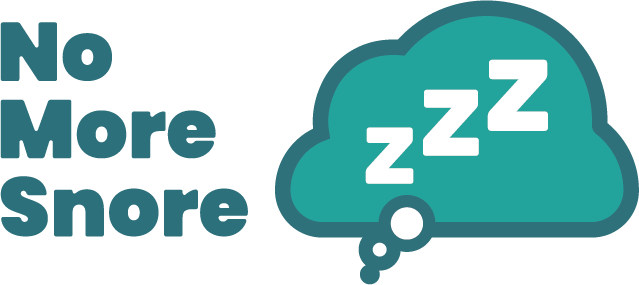Sleep is a fundamental aspect of human health and well-being. It plays a crucial role in various physiological processes, including memory consolidation, immune system function, and hormone regulation. One key hormone involved in sleep regulation is melatonin. In this blog, we will explore the role of melatonin in sleep regulation, its production, factors affecting its release, and ways to optimize its levels for a good night’s sleep.
What is Melatonin?
Melatonin is a hormone produced by the pineal gland, a small gland located in the brain. It is primarily known for its role in regulating the sleep-wake cycle and is often referred to as the “sleep hormone.” Melatonin levels typically rise in the evening, remain elevated throughout the night, and decline in the morning, promoting sleepiness and facilitating a regular sleep schedule.
Circadian Rhythm and Melatonin:
The release of melatonin is tightly regulated by our internal biological clock, known as the circadian rhythm. The circadian rhythm is influenced by external cues, such as light and darkness. Specialized cells in the retina of our eyes detect changes in light intensity and send signals to the brain’s suprachiasmatic nucleus (SCN), which serves as the master clock. The SCN then triggers the pineal gland to start producing melatonin as darkness falls, signaling to the body that it is time to prepare for sleep. Exposure to bright light, especially blue light from electronic devices, can suppress melatonin production and disrupt the sleep-wake cycle.
Effects of Melatonin on Sleep:
Melatonin helps regulate various aspects of sleep. It reduces sleep latency, the time it takes to fall asleep, by promoting relaxation and drowsiness. Melatonin also contributes to sleep continuity, ensuring uninterrupted sleep throughout the night. Additionally, melatonin influences the duration and quality of rapid eye movement (REM) sleep, the stage associated with vivid dreams and cognitive restoration. Optimal melatonin levels contribute to a restorative and refreshing sleep experience.
Factors Affecting Melatonin Production:
Several factors can influence melatonin production and disrupt the natural sleep-wake cycle. Understanding these factors can help individuals make necessary adjustments to promote healthy sleep. Here are some key factors:
Light Exposure:
Exposure to bright light, especially in the evening or during nighttime, can suppress melatonin production. Artificial light from electronic devices, such as smartphones, tablets, and TVs, emit blue light that can interfere with melatonin release. Minimizing exposure to electronic devices, using blue light filters or amber-tinted glasses, and creating a dark sleep environment can help maintain optimal melatonin levels.
Shift Work and Jet Lag:
Disrupting the regular sleep schedule due to shift work or traveling across time zones can disturb the circadian rhythm and affect melatonin production. Shift workers may experience reduced melatonin production due to irregular light exposure patterns. Strategies like gradually adjusting sleep patterns, optimizing light exposure during work shifts, and using melatonin supplements under medical guidance can help alleviate the negative effects of shift work and jet lag.
Age:
Melatonin production tends to decrease with age, which can lead to sleep difficulties in older adults. The pineal gland becomes less responsive to light, resulting in lower melatonin levels. Older adults should prioritize proper sleep hygiene practices, such as maintaining a consistent sleep schedule, creating a sleep-friendly environment, and considering melatonin supplementation under medical supervision.
Melatonin Supplements:
Melatonin supplements are commonly used to address sleep issues, particularly for individuals with circadian rhythm disorders, jet lag, or insomnia. These supplements provide exogenous melatonin to supplement the body’s natural production. It is essential to consult with a healthcare professional before using melatonin supplements to determine the appropriate dosage and timing. They can help assess the underlying causes of sleep disturbances and guide individuals in optimizing their sleep patterns.
Natural Ways to Enhance Melatonin Production:
Apart from supplements, certain lifestyle modifications can naturally enhance melatonin production and promote better sleep:
- Maintain a Consistent Sleep Schedule:
Going to bed and waking up at the same time every day helps regulate the circadian rhythm and optimize melatonin production. Consistency in sleep patterns strengthens the body’s internal clock and promotes better sleep quality.
- Create a Sleep-Friendly Environment:
The sleep environment plays a crucial role in melatonin production and sleep quality. Keep the bedroom dark, quiet, and cool to promote the production of melatonin. Use blackout curtains, earplugs, or white noise machines if necessary.
- Limit Exposure to Blue Light:
Minimize the use of electronic devices before bedtime and consider using blue light filters or amber-tinted glasses to reduce the impact of artificial light on melatonin production. Establishing a digital curfew at least an hour before bedtime can significantly improve sleep quality.
- Establish a Relaxation Routine:
Engage in relaxing activities before bed, such as reading a book, taking a warm bath, practicing meditation or deep breathing exercises. This routine helps signal the body and mind that it’s time to unwind and prepare for sleep.
Melatonin plays a crucial role in regulating our sleep-wake cycle and ensuring healthy sleep patterns. Maintaining optimal melatonin levels is essential for a restful night’s sleep and overall well-being. By understanding the factors that influence melatonin production and adopting healthy sleep habits, we can improve our sleep quality and wake up refreshed, ready to tackle the day ahead. Remember, if you have persistent sleep issues, it is always recommended to consult with a healthcare professional for proper diagnosis and guidance. They can provide personalized recommendations to address your specific sleep needs.

